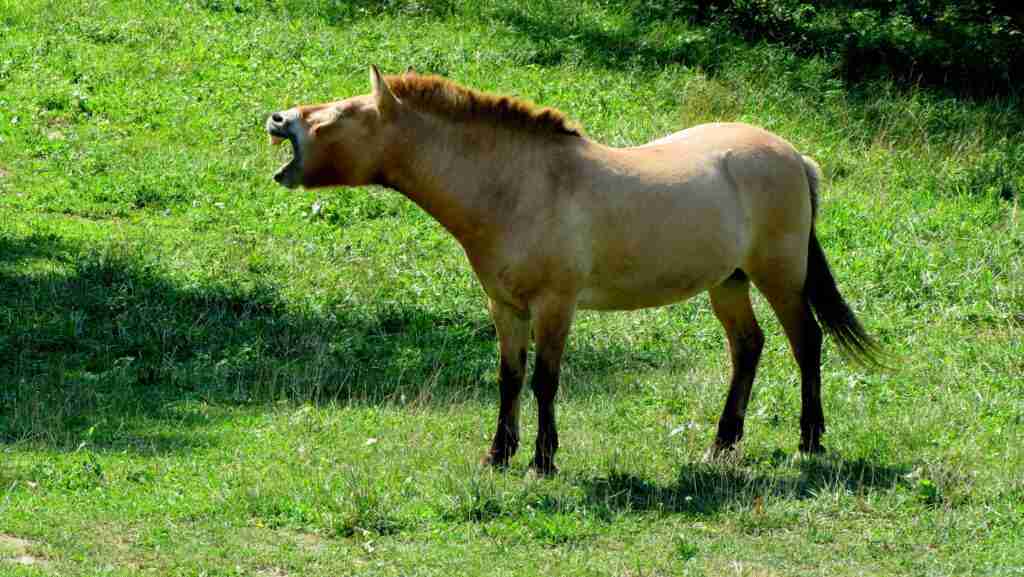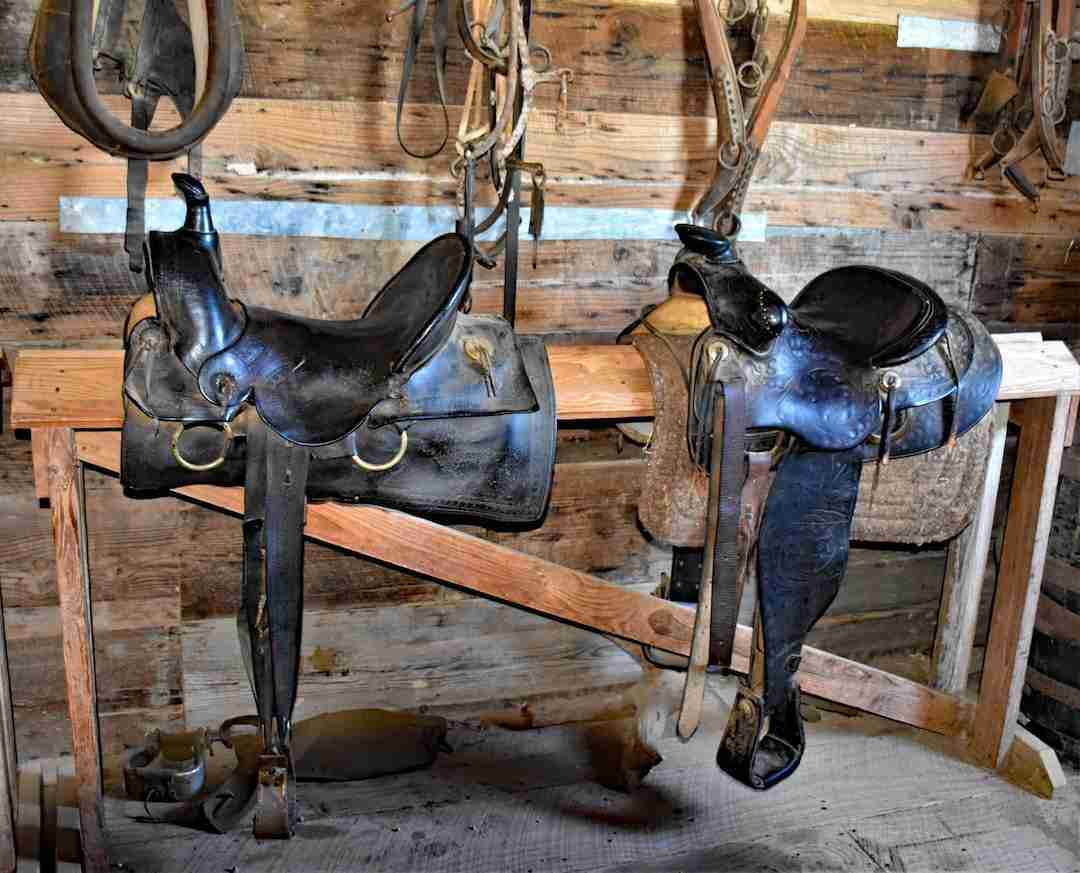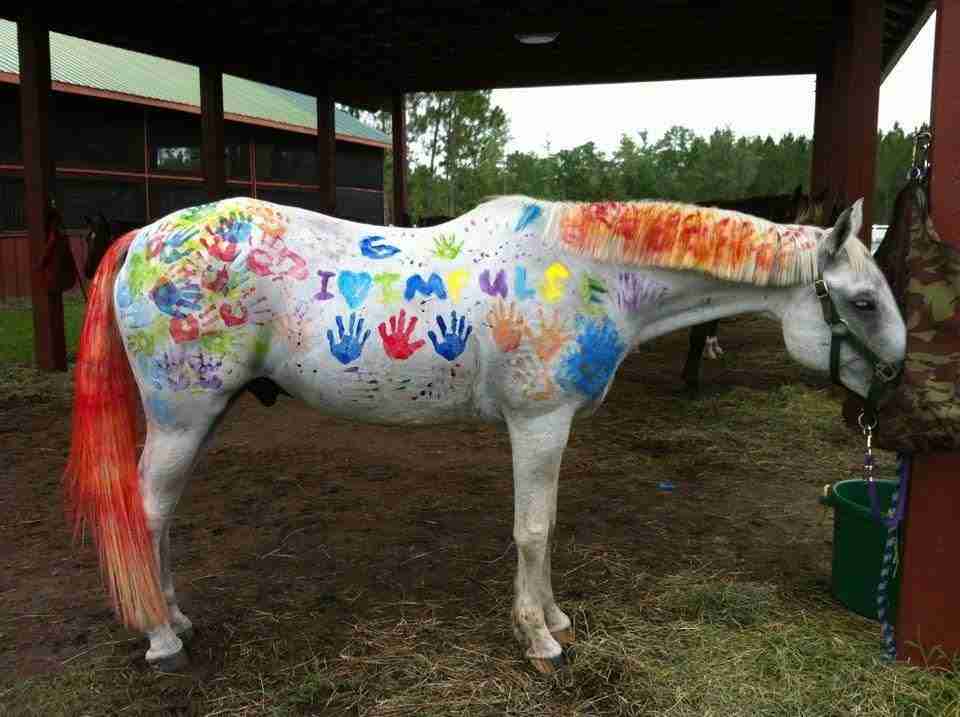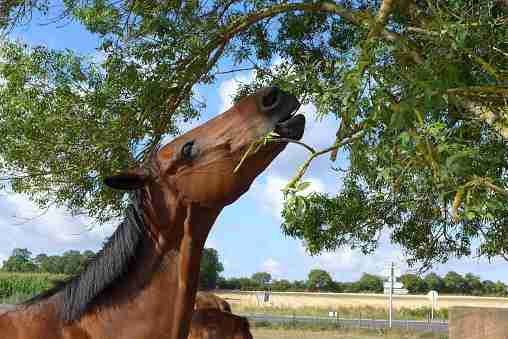My family and I recently visited a Percheron ranch to admire their draft horses and enjoy a carriage ride. While we were greeting some placid white Percherons, the ranch’s prized black stallion came to the fence to greet us. He was in his own camp, yawning at his human mum and us. Seeing such a feisty stallion pulling faces gave us the giggles, but I asked his mum, “Why is your horse yawning?”
Horses yawn as a way of communicating with other horses and humans. Your horse might yawn if it is happy, eager, content, or relaxed. However, if your horse yawns often, it may indicate pain, stress, or discomfort. Horses may yawn if tired, but it is a less common way for them to show exhaustion.
It turns out that Ulysses, the black Percheron, was just very excited to see us. I was promised he was in great health. He certainly did not look tired – quite the opposite. Ulysses wanted to be a part of the action, not in his own camp. When horses yawn, it is also an indicator of social dominance, and Ulysses is undoubtedly the boss at that ranch. But what are the other reasons your horse may yawn?
Four Good Reasons Why Is Your Horse Yawning
As you are aware, horses yawn for reasons that can be good or cause for concern. Therefore, as a responsible horse owner, you should observe your horse’s behavior and note any changes in its frequency of yawning. By monitoring your horse regularly, you will hopefully ascertain if your yawns consistently in the same settings or if the yawning is a new behavior.
Suppose your horse starts to yawn more regularly than usual. In that case, it could be an early warning signal of underlying health or environmental issues that need further investigation and treatment. The sooner you can deal with these concerns, the better. But let us first discuss the non-threatening reasons why your horse might yawn.
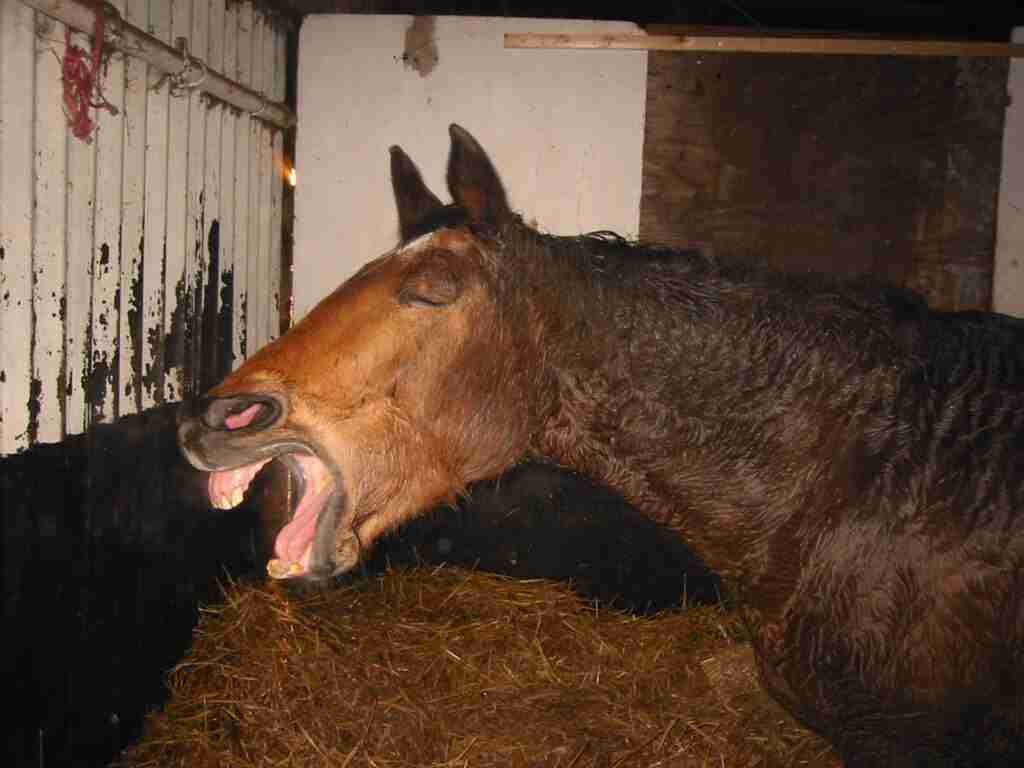
1. Your Horse Might Yawn Because It Anticipates Something Good
Your horse may yawn because it is happy to see you. He may know you are bringing some of his favorite treats or food. Some horses will yawn when they anticipate an outride or a fun activity, and others will yawn in anticipation of being let out of the stable. You even get some horses that yawn at the expectation of a grooming session.
2. Your Horse Might Yawn After A Time Of Rest Or Quiet
Horses often yawn when they rouse or wake from a standing or recumbent (laying down) sleep. They might also yawn when walking off drowsiness or stretching. Equine observers tend to believe horses might yawn out of relaxation, unlike humans, who yawn due to a drop in oxygen levels in their blood.
3. Your Horse Might Yawn Because Of Social Dominance
Scientists have observed that male horses yawn more than mares. In addition, stallions that are encamped near other stallions tend to yawn more frequently. Yawning to express social dominance is not only something horses do, though. Hippopotamus, Siamese Fighting fish, primates, and lions yawn at each other to show power.
4. Your Horse Might Yawn To Calm Another Horse
Some horses are just more empathic than others. Think about the perceptive horses used in equine therapy to aid social and emotional healing in humans. For example, an empathic horse might sense stress in its stablemate and yawn to encourage the self-soothing behavior in another horse.
Six Concerning Reasons Why Your Horse Is Yawning
Suppose your horse has started yawning more than usual and is not looking so perky. In that case, he might feel stressed, exhausted, sick, or uncomfortable. You can use this cue to observe and investigate your horse’s increase in yawning. The solution may be simpler than you expected, and you might just save their life!
1. Your Horse Might Yawn A Lot If It Is Exhausted
A horse can be exhausted due to poor nutrition, lack of clean water (dehydration), or too much strenuous riding or training. It may also be suffering from exhaustion due to untreated illness, excessive stress, or strenuous labor (if it is a mare).
2. Your Horse Might Yawn A Lot Due To Excessive Stress
In horses, yawning lowers stress. As mentioned above, a strenuous ride or training exercise could be stressful for a horse. In addition, a horse in a new or overwhelming environment will likely display increased yawning. For example, your horse may not like its new stablemate, pasture buddies, or the new (or old) groomsman.
A stressed horse will not only yawn as a self-soothing act but do the following things to self-calm:
- Lick itself
- Chew itself
- Stretch
- Pace up and down
- Grind its teeth
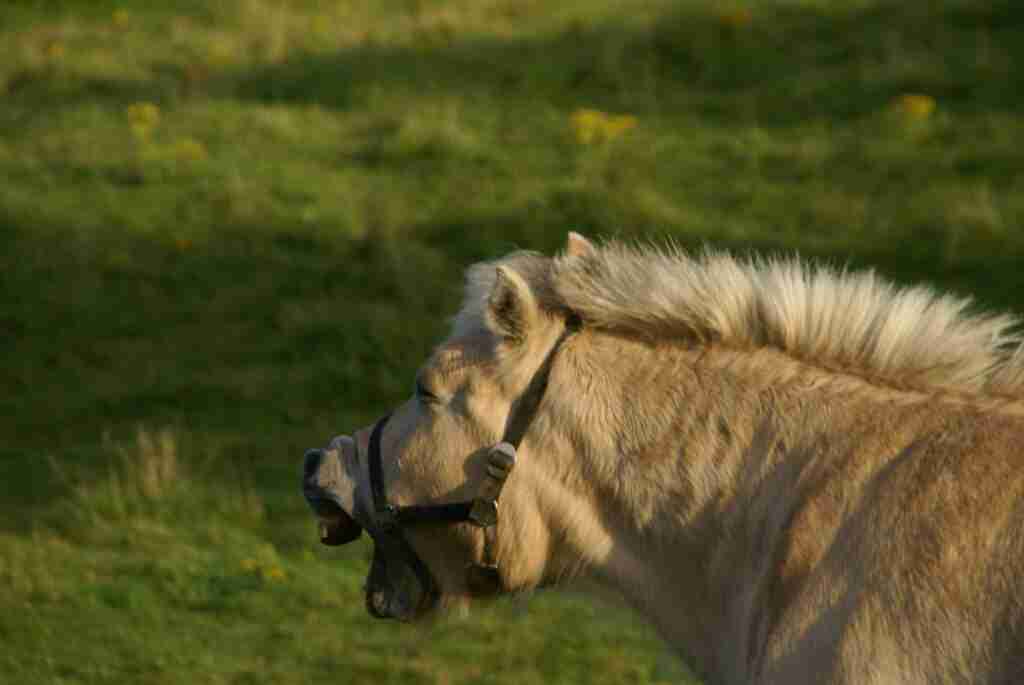
Other behavior a stressed horse might exhibit includes:
- Weight loss
- Bad behavior
- Runny manure
- Sweating
- Inability to urinate
- High pulse
- Trembling
Suppose you can determine your horse is stressed and what is causing the stress. In that instance, you will be able to make changes to its environment to protect your horse’s overall physical and psychological health. In addition, you can eliminate unnecessary stress for your horse by paying attention to its cues.
3. Your Horse Might Yawn To Relieve Gastrointestinal Distress
Horses can get gastric ulcers. They might not be able to tell you in words that they feel discomfort, but they can yawn. Sometimes yawning is the only cue a horse can give you to indicate that it has a gastric ulcer. If you suspect your horse suffers from a gastric ulcer, contact your vet as soon as possible to get treatment for your horse.
Other Articles You May Like
- Breeds of Horses with Blue Eyes
- Do Horses Grow Moustaches?
- How Much Space Does A Horse Need?
- How Strong Is A Horse
- How Often Do Horses Go Into Heat and When Do They Start?
4. Your Horse Might Yawn Because It Is In Pain
Your horse might be experiencing physical pain or discomfort if it starts to yawn more frequently. Depending on the locality of the pain, a horse might yawn to supply temporary relief in the area by stretching the muscles in the painful region.
The different types of pain that might cause a horse to yawn more frequently include colic pain, inner ear pain, oral pain, and temporomandibular joint (TMJ) pain.
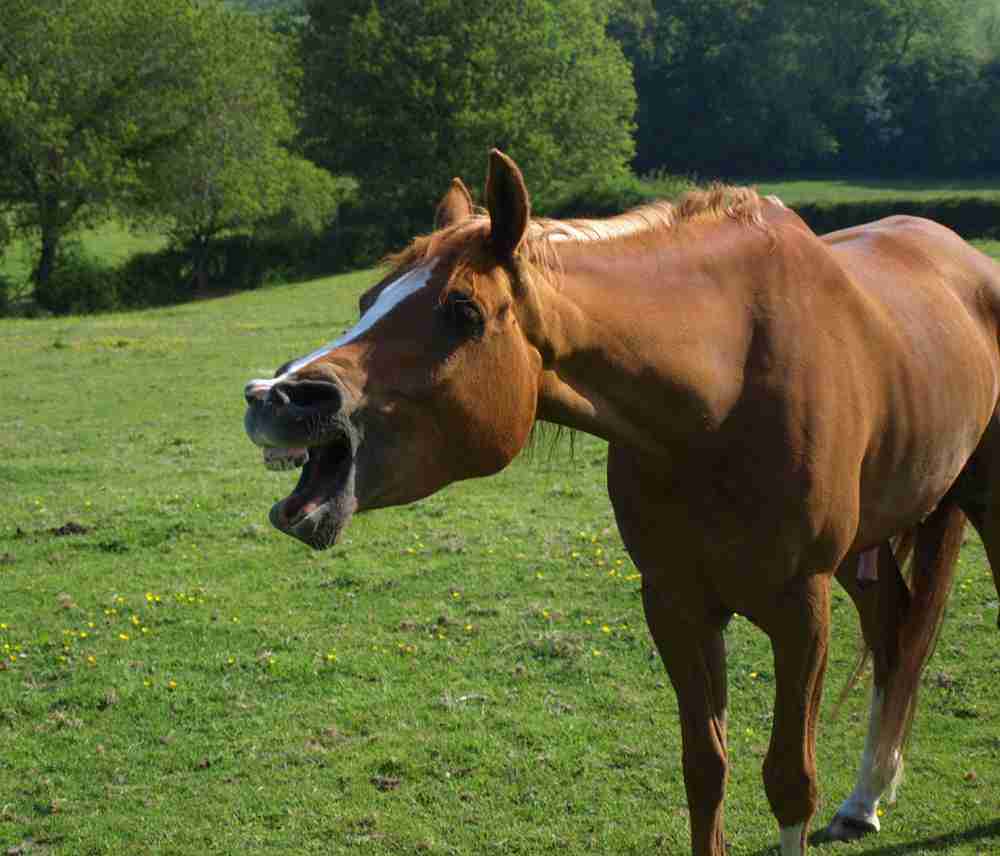
Colic Pain
Colic can be mild or life-threatening, so it is not something to take lightly. For example, if your horse yawns more frequently, it could mean your horse has colic. Aside from frequent yawning, other signs displayed by a horse with colic include tense facial expressions, curling of the upper lip (called Flehmen), tight lips, and not wanting to eat.
Inner Ear Pain
Consider how human ears feel blocked or “pop” with an altitude change or when they seem blocked with hay fever or a cold. It could be that horses yawn to alleviate pain in their inner ear(s). the cause of the inner ear pain might be attributed to infection or injury.
Oral Pain
Does your horse yawn after you remove its bridle? If so, it may have a sore mouth from laceration, compression, impeded blood flow, inflammation, or the stretching of tissues. If you suspect your horse’s oral pain derives from its bit, you would need to change it for your horse’s happiness.
A horse might also yawn due to oral pain caused by a mouth ulcer, uneven wear of the teeth, misaligned teeth, missing or damaged teeth, or secondary pain caused by grinding its teeth. In addition, abnormal spaces in the teeth can lead to gum disease due to food trapped in the cavities. You can prevent oral pain by ensuring your horse gets routine dental care.
Temporomandibular Joint (TMJ) Pain
The Temporomandibular Joint (TMJ) is a complex area where a horse’s lower and upper jaw meet. Amongst the bone is an intricate web of cartilage, ligaments, tendons, salivary glands, muscles, nerves, and blood vessels. A horse may yawn if it experiences pain in this region during chewing or communication with the rider through the bit.
Other causes of pain in the TMJ include:
- Physical trauma (e.g., a kick or accident)
- A fracture
- Inflammation
- Arthritis
- Infection
5. Your Horse Might Yawn Because Of Liver Distress
Liver distress usually goes with other signs of liver disease, which include jaundice, abdominal pain, loss of condition, discolored urine, and diarrhea. If your horse yawns and displays any of these other issues, you may need to contact your vet.
6. Your Horse Might Yawn Because It Feels Isolated
A study was done to determine if isolated or stabled horses yawn more than horses allowed to roam freely. In addition, since yawning is a social cue used by horses, this study wanted to identify if social isolation and confinement triggered yawning and other stereotypical behavior in domesticated horses.
It was noted that horses stabled in a restricted environment yawned more frequently due to increased frustration levels. The other observation was that horses in undisturbed social groups with favorable conditions yawned less, and suggested the better welfare of these horses.
The study did not conclusively state that free-roaming horses are happier because they are free (and yawn less). There are many variables to consider before attaining such a conclusion. However, the researcher felt it is essential information for keepers of domestic horses in evaluating the overall welfare of their horses.
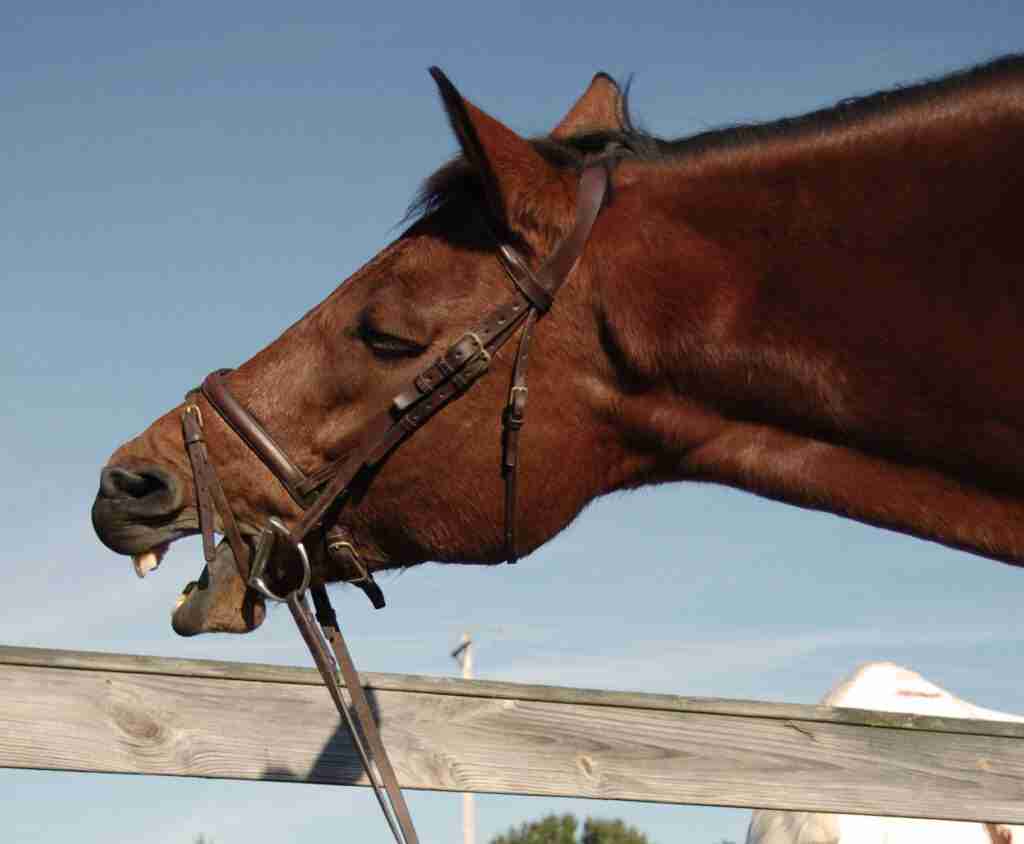
What To Do If Your Horse Is Yawning More Than Usual
As the saying goes, prevention is better than cure. The best way to ensure the health and welfare of your horse is to keep an eye on changes in its behavior. Hopefully, if your horse is yawning, it is just a sign of contentment and relaxation. However, if your horse starts yawning more than usual, you can do the following:
Observe The Environment
If you notice your horse is yawning more often, pause to look at the environment in which you find yourselves. To gain a better insight into your horse’s yawning, you can ask yourself these questions to see what may be causing your horse to yawn more:
- Has there been a change in my horse’s environment?
- Are we busy with an intense training session or ride?
- Does my horse yawn more now than in other conditions or environments?
- What are the potential stressors in this environment?
- Are there new horses in the paddock or stable?
- Could it possibly be the saddle or bridle causing discomfort?
- Does my horse yawn more around certain people or animals?
If you can identify a possible stressor, you will be able to make changes. Once you have made changes, you can observe if those changes cause a decrease in behavior, i.e., yawning.
Check Your Horse For Illness, Discomfort, Or Distress
If you notice your horse is yawning more than usual, you can check it for signs of illness, discomfort, or distress. As mentioned earlier, a yawning horse may suffer from exhaustion, increased stress levels, gastrointestinal disorders, pain, disease, or isolation.
Should you suspect your horse requires medical intervention, you should contact your equine vet as soon as possible to avoid psychological and physical degeneration.
The sooner you remove internal and external stressors from your horse’s living environment, the better for your equestrian friend and you!

Conclusion
Horses will yawn for good reasons such as relaxation, calming, social dominance, and anticipation of good things. However, if your horse displays increased yawning, it may indicate something is amiss. For example, your horse might be trying to tell you that it is exhausted or excessively stressed. Alternatively, it could be suffering from gastrointestinal issues, pain, disease, or loneliness.
Resources

